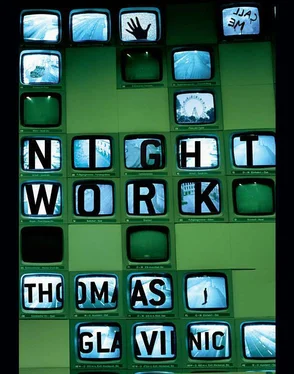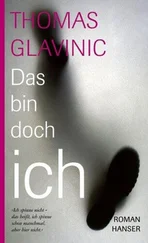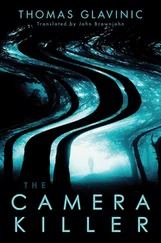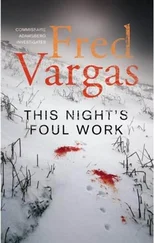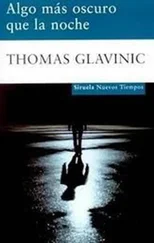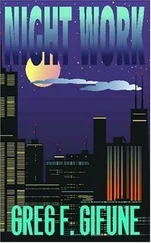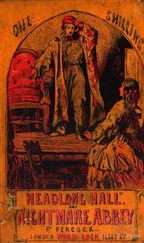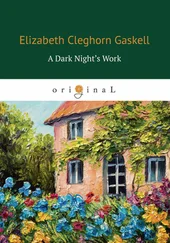Thomas Glavinic - Night Work
Здесь есть возможность читать онлайн «Thomas Glavinic - Night Work» весь текст электронной книги совершенно бесплатно (целиком полную версию без сокращений). В некоторых случаях можно слушать аудио, скачать через торрент в формате fb2 и присутствует краткое содержание. Год выпуска: 2008, Издательство: Canongate Books, Жанр: Современная проза, на английском языке. Описание произведения, (предисловие) а так же отзывы посетителей доступны на портале библиотеки ЛибКат.
- Название:Night Work
- Автор:
- Издательство:Canongate Books
- Жанр:
- Год:2008
- ISBN:нет данных
- Рейтинг книги:5 / 5. Голосов: 2
-
Избранное:Добавить в избранное
- Отзывы:
-
Ваша оценка:
- 100
- 1
- 2
- 3
- 4
- 5
Night Work: краткое содержание, описание и аннотация
Предлагаем к чтению аннотацию, описание, краткое содержание или предисловие (зависит от того, что написал сам автор книги «Night Work»). Если вы не нашли необходимую информацию о книге — напишите в комментариях, мы постараемся отыскать её.
Night Work — читать онлайн бесплатно полную книгу (весь текст) целиком
Ниже представлен текст книги, разбитый по страницам. Система сохранения места последней прочитанной страницы, позволяет с удобством читать онлайн бесплатно книгу «Night Work», без необходимости каждый раз заново искать на чём Вы остановились. Поставьте закладку, и сможете в любой момент перейти на страницу, на которой закончили чтение.
Интервал:
Закладка:
Looking at the snack bars, he was struck by how spick and span they were. No stale bread lying around, no rotting fruit, everything clean and tidy. Most of the city’s cafés and restaurants looked the same.
He had to get out when he reached the Millennium Tower because there was no public access at ground level. Laden with his shotgun, the crowbar and the video camera plus accessories, he took the escalator. One of the lifts whisked him up to the twentieth floor, where he boarded another. The whole ascent took a minute.
The offices on the top floor were open. Jonas chose one whose picture window provided the best view of the city. He put his things down and locked the door.
When he went right up to the window, the view took his breath away. There was a drop of 200 metres. The parked cars looked minute, the litter bins and news-stands were almost unrecognisable as such.
He needn’t have lugged the tripod up there, a table shoved up against the window did just as well. He stacked some books on it. As soon as he considered this makeshift base to be stable enough, he loaded the camera with a blank tape and placed it on top of the books. He adjusted it so that the lens was pointing at the city’s sun-bathed roofs, checking its position on the miniature screen. Then, after jotting down the location, date and time in his notebook, he pressed the record button.
*
The other camera required a tripod. He set it up at the entrance to St Stephen’s Cathedral facing the Haas Haus, where acrobats used to show off their tricks to tourists. Spectacles of that kind left Jonas cold — in fact he’d been so afraid of being accosted by one of these artistes that he’d always hurried past them with his head down.
When everything was ready and he was about to start filming, it occurred to him that he hadn’t yet been into the cathedral. St Stephen’s was one of the few important buildings in the city centre he still hadn’t checked, a careless oversight. It seemed logical that anyone left alive in the city would seek refuge in its biggest church.
He opened the heavy door a crack and slipped inside. The first thing he noticed was the smell of incense, which lay heavy on his chest.
‘Hello? Anyone here?’
His voice sounded feeble in the cathedral’s huge, vaulted nave. He cleared his throat. He called again. The sound went echoing round the walls. He stood still until silence descended once more.
No candles were burning. The church was harshly illuminated by some bulbs suspended at intervals from the roof. The numerous chandeliers were unlit, the high altar was almost invisible.
‘Is anyone here?’ he shouted.
The echo was so shrill, he decided not to call again. Instead, he walked around talking loudly to himself.
Having combed the cathedral and satisfied himself that no one else was there, he turned his attention to the altar of the Virgin Mary. It was she to whom those in need most often addressed their prayers. This was where there were most candle-ends, and where, in the old days, Jonas had seen dozens of mutual strangers praying side by side, fingering their rosaries, pressing their lips to sacred pictures and weeping. The sight had made him feel uneasy. He’d dreaded to think what personal disasters had brought the poor creatures there.
It was the young men in tears who upset him most. You sometimes saw women weeping in public, but he was appalled by the sight of men his own age giving way to their emotions in front of everyone. It pained him to be so close to them, and yet it was all he could do not to go up to them and stroke their bowed heads. Was one of their nearest and dearest sick? Had somebody left them? Had somebody died? Were they themselves terminally ill? There they knelt, those embodiments of mental anguish, with Japanese and Italian tourists taking flash pictures all around them. That’s how it had seemed to him.
He surveyed the empty pews before the unlit altar. He would have liked to sit down but felt as if he was being watched. Felt as if someone was only waiting for him to do so.
With the shotgun on his shoulder, which hurt where the sling had chafed it, he tiptoed down the nave. The saintly figures in their niches looked unreal. Pallid and lacklustre. Their frozen faces reminded him of Pompeiians.
He knew from school that the bones of 12,000 people lay mouldering beneath his feet. The city’s graveyard had been sited here during the Middle Ages. The graves were later opened and prisoners assigned the task of cleaning the bones and stacking them against the walls. The class had fallen very silent during this lesson, he recalled.
He stepped over a barrier to get to the high altar, where he left a message. He attached another to the Virgin Mary’s altar. A search of the sacristy yielded nothing but a few empty bottles of communion wine. There was no clue to when someone had been there last.
Opposite the sacristy was the entrance to the catacombs. The next guided tour would leave at 3 p. m., according to the hour hand on a kind of parking disc. Minimum five persons.
Should he go down there? Not a particularly tempting idea. Besides, he was finding it hard to breathe. The smell of incense was overpowering.
At the exit he turned and looked back. The place was as if frozen. Deserted wooden pews harshly illuminated by little lamps. Grey stone columns. Side altars. Statues of saints with forbidding faces. High, narrow windows that admitted little sunlight.
No sound save the squeaking of his soles on the flagstones.
*
He set up more cameras in front of the parliament building, outside the Hofburg, in the Burgtheater, on the Reichsbrücke, and in a street in the Favoriten quarter. The camera in the Burgtheater he placed so that it was aimed at the pile of junk he’d left on the stage. The one on the Reichsbrücke was pointing down at the Danube. In Favoriten he filmed an intersection. Taking the remaining camera with him, he drove to Hollandstrasse.
After eating something he went back to work. It was the bedroom’s turn today. As before, he began by clearing the decks. He chucked the smaller objects out of the window, flower stands, house plants, chairs, and dumped the contents of a display cabinet in some rubbish bags. By the time he’d chopped up the bedstead, he felt he’d done enough for one day. He placed the camera on the floor, made a note of the place and time and pressed the record button.
Back home he went round collecting the audio tapes.
He sat down on the sofa with a glass of fruit juice and a bag of crisps. He’d placed the tape recorder on the table beside him, where he could reach it.
The first tape came from his immediate neighbour’s vacant flat. For a whole hour he listened to the silence that had reigned in the empty rooms next door. Sometimes he thought he heard sounds, but they were probably just noises he himself was making in the other flats. Or simply his imagination.
Looking out of the window, he saw that storm clouds had gathered for the first time in two weeks. He decided to save the next tape for later and bring the outdoor cameras under cover instead.
As he drove around the city, casting nervous glances at the steadily darkening sky, he remembered the spiritualist experiments he’d conducted as a part-superstitious, part-adventurous boy. They had been inspired by a half-demented neighbour, old Frau Bender, who kept him company when his mother was busy.
Frau Bender often told him about her experiences with ‘the hereafter’ or ‘the other side’. About table-turning sessions during which the little wooden table had cavorted around the flat with her and her friends’ fingers glued to the top, or about the poltergeists that plagued her family for eighteen months because she and her girlfriends had pooh-poohed their existence. Locked cupboard doors creaked open at night, tapping was heard inside walls, and window panes were scratched by unseen fingernails. Not all at the same time, though. Sometimes it was one phenomenon, sometimes another.
Читать дальшеИнтервал:
Закладка:
Похожие книги на «Night Work»
Представляем Вашему вниманию похожие книги на «Night Work» списком для выбора. Мы отобрали схожую по названию и смыслу литературу в надежде предоставить читателям больше вариантов отыскать новые, интересные, ещё непрочитанные произведения.
Обсуждение, отзывы о книге «Night Work» и просто собственные мнения читателей. Оставьте ваши комментарии, напишите, что Вы думаете о произведении, его смысле или главных героях. Укажите что конкретно понравилось, а что нет, и почему Вы так считаете.
